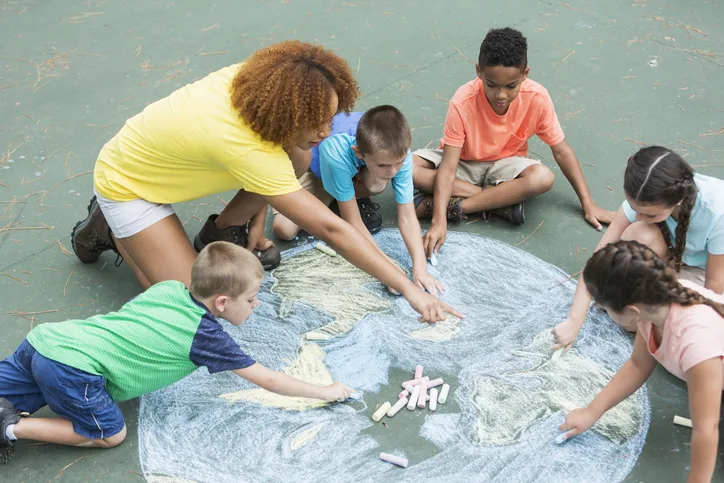Early childhood education is a vital and rewarding field, offering opportunities to positively impact the lives of young children during their formative years. For those considering or already pursuing a career in this area, there are several key strategies and tips to keep in mind to build a successful and fulfilling career. In this blog post, we’ll explore six essential tips to help you navigate and thrive in the field of early childhood education.

The Impact and Importance of Early Childhood Education
Early childhood education plays a pivotal role in shaping the foundation of a child’s future. It encompasses a range of educational practices and experiences tailored to meet the developmental needs of young children, focusing on areas such as cognitive, social, emotional, and physical development.
Training courses are instrumental in equipping educators with the knowledge, skills, and strategies necessary to create nurturing and stimulating learning environments. These early childhood education training courses delve into child development theories, curriculum planning, effective teaching methodologies, and strategies for fostering positive relationships with children and families. Through early childhood education, children not only acquire essential academic skills but also develop critical thinking abilities, creativity, resilience, and social skills that serve as building blocks for lifelong learning and success. The impact of quality early childhood education extends far beyond the classroom, contributing significantly to the overall well-being and development of society as a whole.
Invest in Your Education and Continuous Learning
One of the foundational steps in building a career in early childhood education is to invest in your education. While a bachelor’s degree in early childhood education or a related field is often the minimum requirement for many positions, pursuing higher education, such as a master’s degree or specialized certifications, can significantly enhance your knowledge and qualifications.
Continuous learning is also crucial in this field, given the evolving research and best practices in early childhood development. Stay updated with the latest trends, attend workshops, seminars, and conferences, and consider joining professional organizations like the National Association for the Education of Young Children (NAEYC) or the Association for Childhood Education International (ACEI) to access resources and networking opportunities.
You should take a look at what financial options are available for you when looking to study like these private student loans for example.
Gain Practical Experience Through Internships and Workshops
Practical experience is invaluable in early childhood education. Seek out internships or volunteer opportunities at preschools, daycare centers, or early childhood programs to gain hands-on experience working with young children. These experiences not only provide valuable skills but also help you understand the day-to-day responsibilities and challenges of the field.
Additionally, participate in workshops or training sessions focused on early childhood education topics such as child development, curriculum planning, behavior management, and family engagement. These experiences will enrich your knowledge and make you a more well-rounded educator.
Develop Strong Communication and Collaboration Skills
Effective communication and collaboration are essential skills for success in early childhood education. As an educator, you’ll interact not only with young children but also with parents, colleagues, administrators, and other stakeholders. Develop strong verbal and written communication skills to convey information clearly and compassionately.
Collaboration is also key, as you’ll often work in teams with other educators, therapists, and specialists to support children’s holistic development. Foster a collaborative mindset, be open to feedback and different perspectives, and actively participate in team meetings and discussions.
Embrace Diversity and Inclusion
Diversity and inclusion are integral aspects of early childhood education. Children come from various cultural, linguistic, and socioeconomic backgrounds, and it’s essential to create inclusive learning environments where every child feels valued and supported.
Educate yourself on cultural competence and inclusive teaching practices. Incorporate diverse perspectives, materials, and activities into your curriculum to celebrate differences and promote empathy and understanding among children. Advocate for inclusive policies and practices within your educational institution or community.
Prioritize Child-Centered Approaches
A child-centered approach is at the heart of effective early childhood education. Focus on understanding each child’s unique strengths, interests, and needs, and tailor your teaching strategies accordingly. Create engaging and developmentally appropriate learning experiences that encourage curiosity, exploration, and creativity.
Implement play-based learning activities, hands-on experiences, and opportunities for social interaction to support children’s cognitive, social-emotional, and physical development. Foster a nurturing and supportive classroom environment where children feel safe to learn, explore, and express themselves.

In conclusion, building a successful career in early childhood education requires a combination of education, practical experience, strong communication and collaboration skills, a commitment to diversity and inclusion, child-centered approaches, and passion and resilience. By following these tips and continuously learning and growing, you can make a lasting impact in the field and contribute to the positive development of young children.

Jessi is the creative mind behind The Coffee Mom, a popular blog that combines parenting advice, travel tips, and a love for all things Disney. As a trusted Disney influencer and passionate storyteller, Jessi’s authentic insights and relatable content resonate with readers worldwide.
